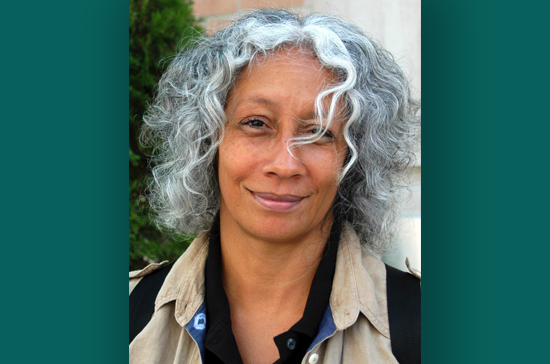Sabrina Goldberg

Visions of Possibility: Ignite Student Imagination Through Flipped-Teaching & Project-Based Learning
This workshop will focus on project based-learning as a method to harness student interests and validate their voices. You will see how they can be empowered to make choices and evolve as self-directed learners, who take responsibility for their learning, develop mental self-management skills, and ultimately use their social imagination to become as Maxine Greene described in Releasing the Imagination (2000), “visions of possibility” (pp. 197-198). Strategies to ensure student ownership of their learning will be shared. Teachers will leave this workshop inspired to use applications and technology integration tools that support flipped-teaching and project-based learning. Exemplars of student work and insights on formative and summative assessment techniques used to assess project-based learning (e.g., pre-assessment, post-assessment, embedded assessment) will also be shared. Visions of Possibility is a dynamic workshop that will engage and inspire.
Bio
School was my anchor. I grew-up working class poor in Bedford Stuyvesant, Brooklyn and attended several different elementary schools until I received a full scholarship to attend Northfield Mt. Hermon. I excelled in art and the humanities. Mathematics was my least favorite subject and I failed Pre-algebra and Algebra, the very subjects I teach now! Even so, early in my career I was encouraged to become a mathematics teacher, and taught 5th graders mathematics at Hunter College Elementary School, a laboratory school for intellectually gifted students. There I invented the Great Mathematician Project (GMP) to humanize mathematics. I left Hunter to teach at The School at Columbia University because I wanted to learn how to integrate technology into the GMP. Today I consider myself a facilitator, fearlessly communicating what I value: compassion, empathy, creativity, a love for teaching, a joy in learning, and collaboration. To nurture these values in children, the first step is to foster a sense of community and social responsibility, which they will need in order to achieve a meaningful global identity. John Dewey talked about “habits of heart, hand, and mind” that are linked to students’ interests and concerns, and I believe that when we validate a student’s concerns, they sense the teacher respects their intellect and values their individuality. Likewise when we communicate kindness and fellowship with each other as practitioners, students benefit and view the world more expansively. Cultivating these habits necessitates going beyond the ecology of the classroom. It involves cultivating a growth mindset and the desire to imagine new possibilities. For these reasons I believe that the emphasis should be on moving beyond labels that stigmatize and pigeonhole learners. Toward that purpose I’ve used my training in gifted education to personalize learning, and I’ve used professional development (PD) to engage with peers from diverse cultures and areas of expertise. As an educator I’ve benefitted from PD. Listening to Alan November at an ISTE conference I realized that I was “Novemberized!” The student-generated videos he shared validated flip-teaching strategies that I use. From that moment on, I felt empowered to integrate technology because I saw it as a way to add depth and breath to my practice. In fact, integrating technology increased my understanding of how to optimize project-based learning and 21st century learning skills. Overall, I’ve learned that whether I’m presenting and sharing my expertise on project-based learning, or attending a PD workshop on Cultural Competence Methods and Strategies, inevitably I feel energized and personally transformed. So I’ve used technology as a tool for differentiation to create equity in my classroom and to build a sense of agency and capacity. This has empowered all of my students. From the middle school students I teach, to graduate students who are mathematics teachers-in-training, to my peers. I believe that the true value of teaching and learning is not just how we exhibit a thoughtful understanding of the world in which we live, but why we inspire others to teach and learn.
Resources Folder
Sabrina Goldberg Workshop Resources Folder Here: http://tiny.cc/sabrinagoldberg-etsa17
